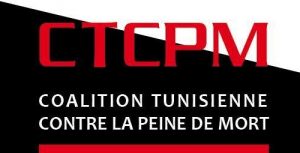Joint oral intervention at the 64th session of the ACHPR in Egypt
25 April 2019
On April 25, ECPM is participating in the 64th session of the African Commission on Human and Peoples' Rights (ACHPR), held in Egypt from April 24 to May 14, 2019. An unmissable opportunity to address the issue of the death penalty in a country recently criticized for its human rights violations.

Today, ECPM participated for the second time in the ordinary session of the ACHPR after obtaining observer status in 2017, allowing it to better understand the functioning of this mechanism, which has a role to play in the path towards abolition on the continent. Following on from the 7th World Congress against the Death Penalty, one of the main plenary sessions of which was entitled "Strategies towards abolition: challenges and opportunities in sub-Saharan Africa", addressing this session of the ACHPR will strengthen the inclusion of the issue on the agenda and allow the subject to be discussed in African forums.
WordPress database error: [Disk full (/tmp/#sql_5017_0.MAI); waiting for someone to free some space... (errno: 28 "No space left on device")]SELECT t.*, tt.* FROM wp_terms AS t INNER JOIN wp_term_taxonomy AS tt ON t.term_id = tt.term_id INNER JOIN wp_term_relationships AS tr ON tr.term_taxonomy_id = tt.term_taxonomy_id WHERE tt.taxonomy IN ('language', 'post_translations') AND tr.object_id IN (8214) ORDER BY t.name ASC
Oral intervention during item 3 of the agenda on the human rights situation in Africa
Statement by Mr. Znaidi, Deputy Coordinator of the Moroccan Coalition Against the Death Penalty - 25 April 2019 - Egypt
Madam President, Honourable Commissioners, Ladies and Gentlemen,
ECPM (Ensemble contre la Peine de mort), the Moroccan Coalition Against the Death Penalty, the Tunisian Coalition Against the Death Penalty, the Algerian League for the Defence of Human Rights and the Mauritanian Human Rights Association call on States to move towards the abolition of the death penalty.
The African Charter on Human and Peoples' Rights states in Article 6 that "Every human being has the right to physical and moral integrity". The International Covenant on Civil and Political Rights provides in its article 6 that "in countries where the death penalty has not been abolished, a death sentence may be imposed only for the most serious crimes" States that have undertaken to implement international and regional conventions providing in particular for respect for the right to life and the prohibition of all forms of torture and cruel and degrading inhuman treatment should protect, respect and implement their obligations.
Today, 146 States in the world have abolished the death penalty, de jure or de facto. Algeria, Morocco, Mauritania, Tunisia have not seen executions for nearly 30 years, they are under a de facto moratorium. Nevertheless, death sentences continue to be handed down in these States. In 2017, in Algeria, at least 27 death sentences were reportedly handed down against at least 1 in 2018. In Morocco, 15 convictions were reported in 2017 and 10 in 2018. In Tunisia, 25 sentences were reportedly handed down in 2017 and 12 in 2018, and in Mauritania, several death sentences were reportedly handed down in 2017 and at least 3 in 2018. Libya will experience a moratorium, the reality of which has remained difficult to verify for almost 10 years. In 2018, at least 45 death sentences were reportedly handed down. In Egypt, at least 717 death sentences were reportedly handed down and at least 43 death sentences were reportedly executed in 2018.
Algeria and Tunisia have been voting for several years in favour of the United Nations General Assembly Resolution calling for a universal moratorium on the use of the death penalty. In de facto moratorium countries, persons sentenced to death are victims of several forms of human rights violations. International jurisprudence considers that the risk of being executed overnight and the expectation of an announced death can be considered in itself as a form of torture. This is true in countries where they know they will be executed. This is also true in de facto moratorium countries, where the expectation is indefinite.
These States should;
- Put an end to executions and support the States that are still executing towards the establishment of a de facto moratorium,
- Abolish the death penalty for all crimes,
- Switch death sentences and start far-reaching reforms of their criminal legislation with a view to abolishing the death penalty,
- Support actors working towards the abolition of the death penalty,
- Ensure respect for the rights of prisoners sentenced to death,
- Ratify the Second Optional Protocol to the International Covenant on Civil and Political Rights;
- Support the adoption of the draft Additional Protocol to the African Charter on Human and Peoples' Rights on the abolition of the death penalty in Africa;













